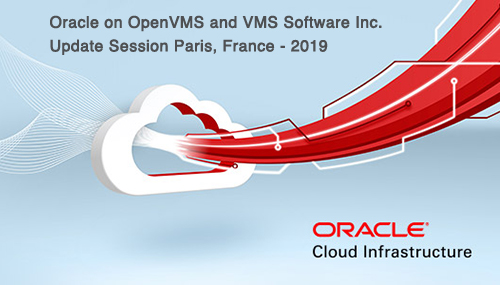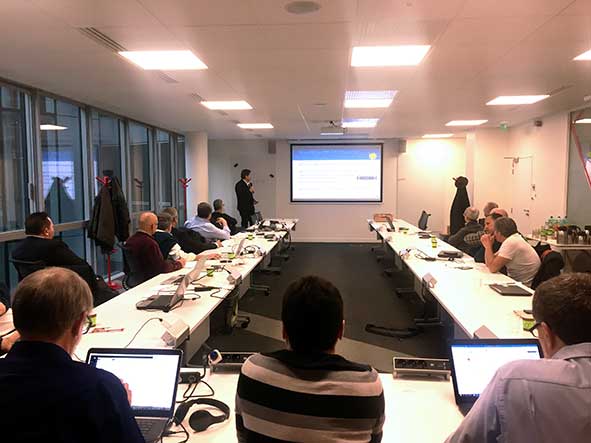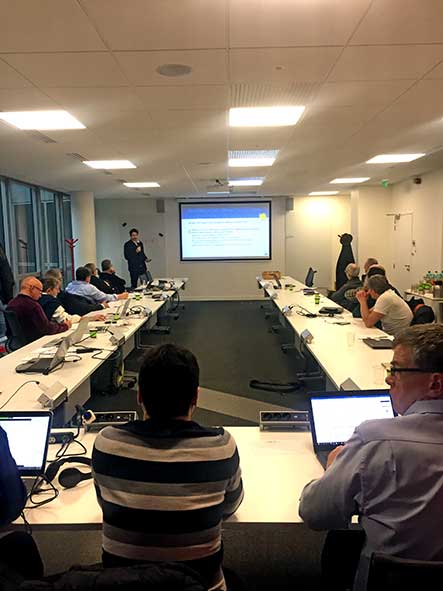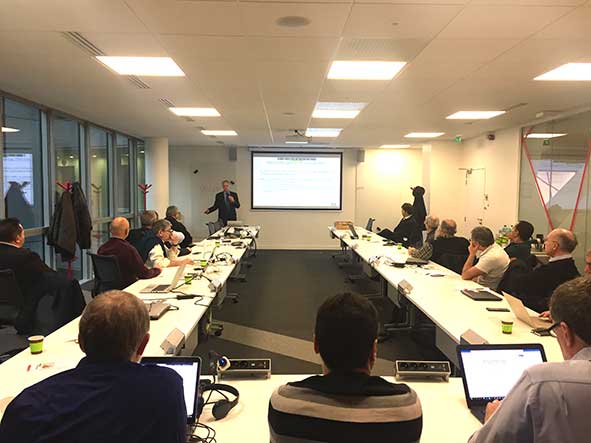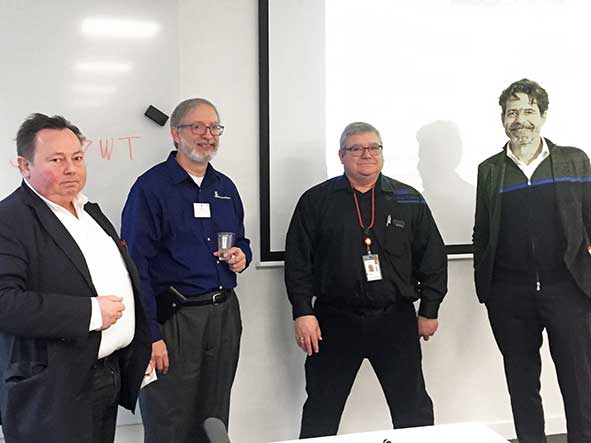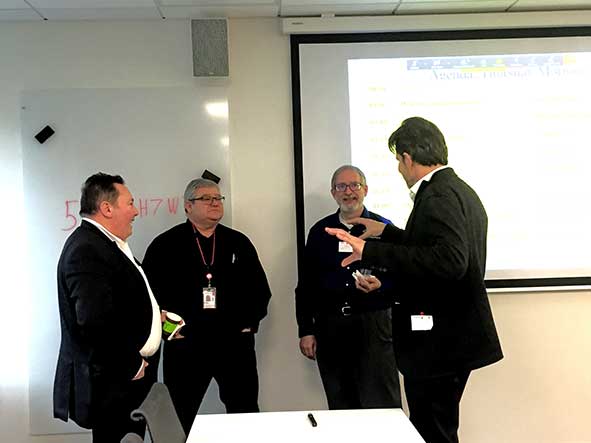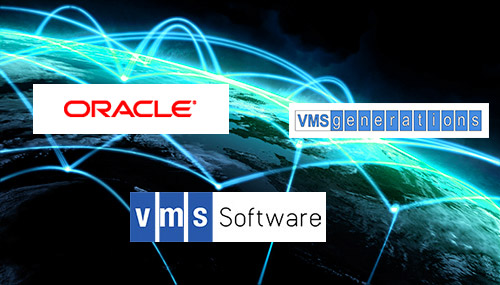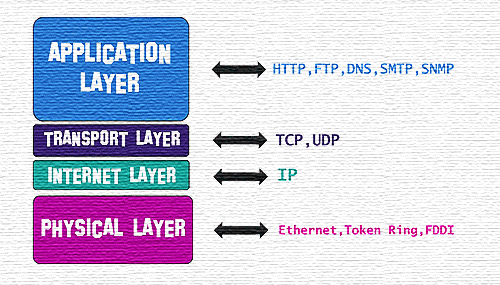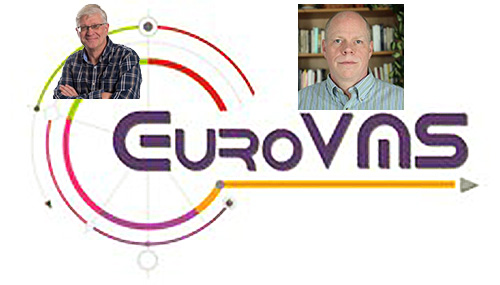Catégorie : Technique
Forum avec Oracle, VSI et VMSgenerations (2019)
Forum Oracle VSI du 8 novembre 2018
Nouveau TCP/IP pour OpenVMS
Forum OpenVMS avec John Reagan
Johan Michiels (EuroVMS) et VMSgenerations ont invité la communauté OpenVMS France à un forum technique animé par John Reagan (VSI), responsable développement des compilateurs sous OpenVMS, autour du portage X86.
Ce forum s’est tenu le 10 Avril 2019 à Diegem (Belgique) au centre de conférences Green House Bruxelles .

